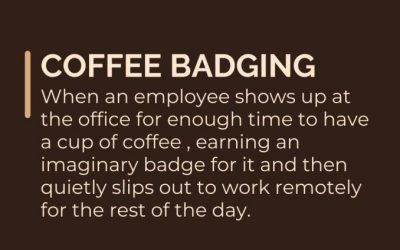A recent study into the quality of working lives, conducted by London’s Chartered Management Institute, produced some startling results. The aim of the study was to explore the well being, motivation and productivity levels of Managers; to determine contributing attributes that affect these factors; and to provide a solution to these issues. The report demonstrates the impact that leadership and organisational structure has on health and well-being. The results from the study aim to provide lessons and insights into what managers can do to improve their working life, and what line managers and directors can do in helping managers achieve a healthy working environment.
Some of the key issues that became apparent within the study is that digital presenteeism is having an adverse effect on managers; long hours are increasing stress levels – and even cancelling out annual leave entitlement; and workload is impacting on health and well-being. This being said, job satisfaction levels have increased from 55% in 2012 to 67% in 2015.
The Age of Digital Presenteeism: High connectivity = High stress
61% of Managers reported that they find it difficult to switch off from work commitments due to accessibility to emails. Remote access and connectivity to office functions, have been widely appraised by Managing Directors in a bid to reduce lost working hours due to absenteeism and unusual circumstances e.g. weather, however remote access is having adverse effects on Managers. 61% say that technology makes it hard to switch off, furthering this – those who struggle to switch off reported lower productivity levels and job satisfaction, and more frequent stress. In a bid to reduce the adverse effects of technology, 39% believe that out-of-hours, remote access to emails should be restricted by their employers.
Long Working Hours Cancels out Annual Leave Entitlement
A staggering 92% of managers work longer than their contracted hours. ‘Always on’ management is beginning to take its toll on UK Managers, with a staggering average of 29 days extra work a year in additional unpaid overtime, annual leave entitlement is being cancelled out by overtime all-together. 54% of Managers stated that long working hours are having a negative impact on them, however this is a 5% decrease from 2012. It is reported that stress is 3 times more common among those working longer hours, supporting this, 20% of those working over 3 hours extra per day said they often feel stressed.
The Effects of Workload on Health, Well-being and Motivation
The majority of Managers’ report a negative impact on their health and well-being due to workload. The list of health implications that workload is having include mood swings, lack of appetite and overeating, and even depression and panic or anxiety attacks. Sleep loss tops this list with 57% reporting insomnia and muscle aches, followed by headaches and constant irritability. Managers in the public sector are currently facing significant organisational challenges including low motivation, productivity and job satisfaction. Motivation in private sectors, however, remain higher. This also applies to those organisations experiencing internal growth.
The Implications of Poor Management Strategy
The worst perceived management styles generate 4 times more stress than the best perceived management styles. According to the report, the ‘worst’ styles include secretive, risk-averse and authoritarian management styles; however, accessible, empowering and trusting methods of management come out on top as the most favorable styles of management. The favored methods drive job satisfaction levels up to 2.5 times more than the less-preferred methods. It was reported that the top engagement drivers are as follows:
- The sense of achievement you get from your job
- Your sense of feeling part of a team
- Your relationship with your manager
- Your ability to decide how to complete your projects and tasks
- Your prospects for career enhancement.
Job Satisfaction on the Up
In contrast to the disheartening figures and statistics, job satisfaction is improving. 67% of managers overall are satisfied with their job – a significant increase from 55% in 2012, and a further 62% in 2007. One would wonder how this can be the case, given the unfavorable figures. However, there are some factors that significantly contribute to satisfaction. 39% reported that their satisfaction was down to growth of the organisation. 79% feel that their line manager trusts them, with a further 61% stating that they feel fairly treated by their employer. And finally, 76% say they are proud to work for their employer and believe in the values of the organisation.











